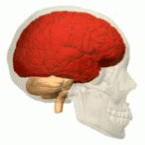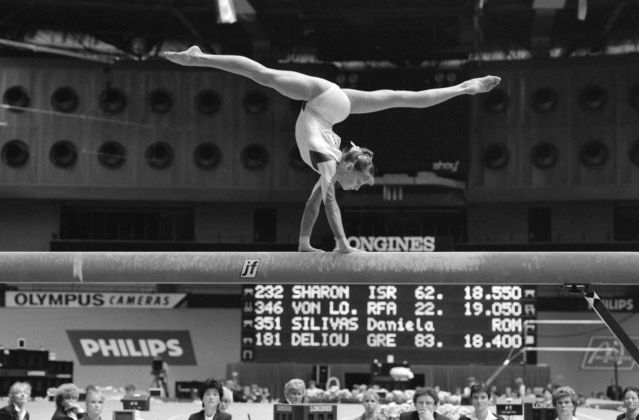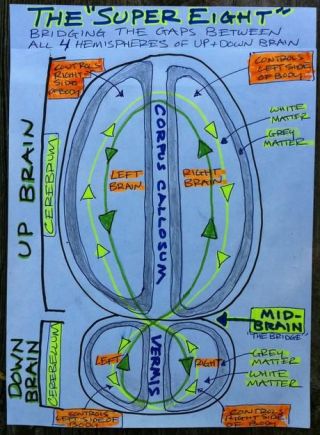Memory
Want to Improve Your Cognitive Abilities? Go Climb a Tree!
Activities that engage proprioception and the cerebellum benefit working memory.
Posted July 30, 2015

A new study has discovered that physical activities, such as climbing a tree or balancing on a beam, can improve cognitive abilities.
Why would climbing a tree improve cognitive function? An educated guess is that dynamic physical activities which engage all four brain hemispheres—including both hemispheres of the cerebrum (Latin for brain) and both hemispheres of the cerebellum (Latin for little brain)—optimize brain structure, function, and working memory.
The new study was led by Drs. Ross Alloway, PhD and Tracy Alloway, Phd from the Department of Psychology at the University of North Florida (UNF). This study is the first to show that proprioceptively dynamic activities, like climbing a tree, done over a short period of time, can improve working memory, which is required for the active processing of cognitive information.
The July 2015 study, “The Working Memory Benefits of Proprioceptively Demanding Training: A Pilot Study,” was published in the journal Perceptual and Motor Skills. The goal of this study was to investigate the effect of proprioception on working memory.
For this study, the Alloways recruited adults ages 18 to 59 and tested their working memory. Next, they undertook proprioceptively dynamic activities, which required proprioception and at least one other element, such as locomotion or route planning.
Proprioception is the sense of the relative position of neighboring parts of your body and the strength and coordinated muscular actions necessary to maintain balance and fine-tuned motor skills.
What Is the Link Between Proprioception, the Cerebellum, and Working Memory?

The cerebellum is largely responsible for coordinating the unconscious aspects of proprioception. The brain integrates information from proprioception using all four brain hemispheres. More specifically, the vestibular system keeps track of your overall sense of body position, movement, acceleration etc.

The new findings suggest that working memory improvements can be made in just a couple of hours of physical exercises that require dynamic proprioception.
In a press release, Alloway said, "Improving working memory can have a beneficial effect on so many areas in our life, and it's exciting to see that proprioceptive activities can enhance it in such a short period of time."
The researchers of this study don't discuss the cerebellum specifically. However, they hypothesize that one possible reason that proprioceptive training yields significant working memory gains might be related to the fact that proprioceptively dynamic training requires various brain functions.
The experiment involved proprioception and at least one other factor—such as locomotion or navigation—at the same time. Alloway believes that this multi-faceted brain engagement may have contributed to improved working memory performance.

In the study, the proprioceptive activities included climbing trees, walking and crawling on a balance beam, or moving while paying attention to posture, running barefoot, navigating over, under and around obstacles, as well as lifting and carrying awkwardly weighted objects. After two hours, the researchers tested working memory again and found that working memory capacity had increased by a dramatic 50 percent.

The researchers also enlisted two control groups for the study. The first control group was a college class learning new information in a lecture setting to see if learning new information improved working memory. The second was a yoga class to see if static proprioceptive activities were cognitively beneficial. Neither control group experienced working memory benefits.
The findings show that healthy adults who undertook acute, proprioceptively demanding training considerably improved their working memory scores in comparison to the classroom and yoga groups.
Proprioceptively dynamic activities put greater demand on working memory than either control condition because as the environment and terrain changed, each study participant needed to recruit more working memory to update the incoming information and adapt accordingly.
Although the yoga control group engaged in proprioceptive activities that required awareness of body position, the type of yoga they were performing was basically static. Also, the yoga postures were performed in a small space, which didn't allow for locomotion or navigation. I suspect that other types of yoga, performed under different circumstances, would improve working memory.
Conclusion: Engaging Proprioception and the Cerebellum Has Cognitive Benefits
Although the Alloways didn't delve into the neuroscience behind their findings, I have written extensively on other research that links proprioception, motor skills, the cerebellum, and aerobic activity with improved cognitive function and working memory. In a press release, Ross Alloway summed up the relevance and practical applications of his study saying,
This research suggests that by doing activities that make us think, we can exercise our brains as well as our bodies. This research has wide-ranging implications for everyone from kids to adults. By taking a break to do activities that are unpredictable and require us to consciously adapt our movements, we can boost our working memory to perform better in the classroom and the boardroom.
If you'd like to read more on these topics, check out my Psychology Today blog posts:
- “The Cerebellum May Be the Seat of Creativity”
- "Better Motor Skills Linked to Higher Academic Scores"
- "Hand-Eye Coordination Improves Cognitive and Social Skills"
- "The Neuroscience of Imagination"
- "Why Does Walking Stimulate Creative Thinking?"
- "The "Right Brain" Is Not the Only Source of Creativity"
- "The Cerebellum Deeply Influences Our Thoughts and Emotions"
- "The Wacky Neuroscience of Forgetting How to Ride a Bicycle"
- "Why Do Drunk People Stumble, Fumble, and Slur Their Words"
- “The Cerebellum, Cerebral Cortex, and Autism Are Intertwined”
- "How Is the Cerebellum Linked to Autism Spectrum Disorders?"
- "Research Links Autism Severity With Motor Skill Deficiencies"
- "The Neuroscience of Calming a Baby"
- "How Are Purkinje Cells in the Cerebellum Linked to Autism?"
- "Autism, Purkinje Cells and the Cerebellum Are Intertwined"
- “How Is the Cerebellum Linked to Bipolar Disorder?”
- "How Does Body Posture Affect Early Learning and Memory?"
- "The Cerebellum Holds Many Clues for Creating Humanoid Robots"
- "Childhood Family Problems Can Stunt Brain Development"
- "Is Cerebellum Size Linked to Human Intelligence?"
- "Primitive Brain Area Linked to Human Intelligence"
- "The Neuroscience of Knowing Without Knowing"
- "The Mysterious Neuroscience of Learning Automatic Skills"
- "The Neurobiology of Grace Under Pressure"
- "How Does the Vagus Nerve Convey Gut Instincts to the Brain?"
- "Why Does Overthinking Cause Athletes to Choke?"
- "Toward a New Split-Brain Model: Up Brain-Down Brain"
- "Neuroscientists Discover How Practice Makes Perfect"
- “Why Is Dancing So Good For Your Brain?”
- “The Neuroscience of Madonna’s Enduring Success”
- "No. 1 Reason Practice Makes Perfect"
- "How Does Practice Hardwire Long-Term Muscle Memory?"
Follow me on Twitter @ckbergland for updates on The Athlete's Way blog posts.
© Christopher Bergland 2015. All rights reserved.
The Athlete’s Way ® is a registered trademark of Christopher Bergland.




